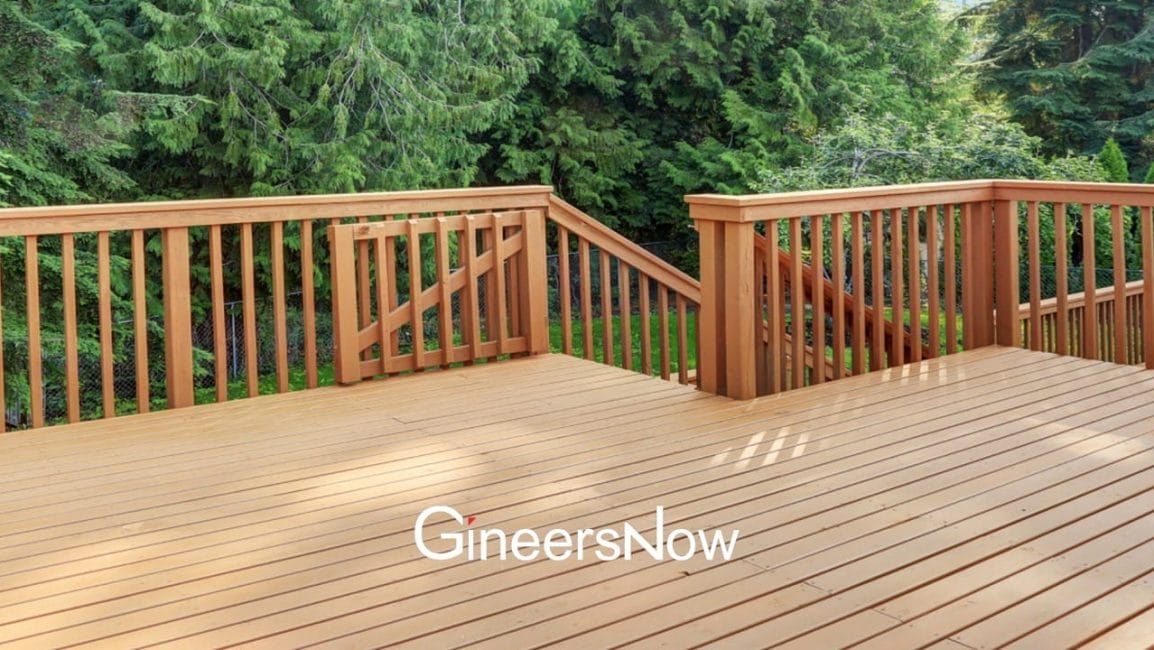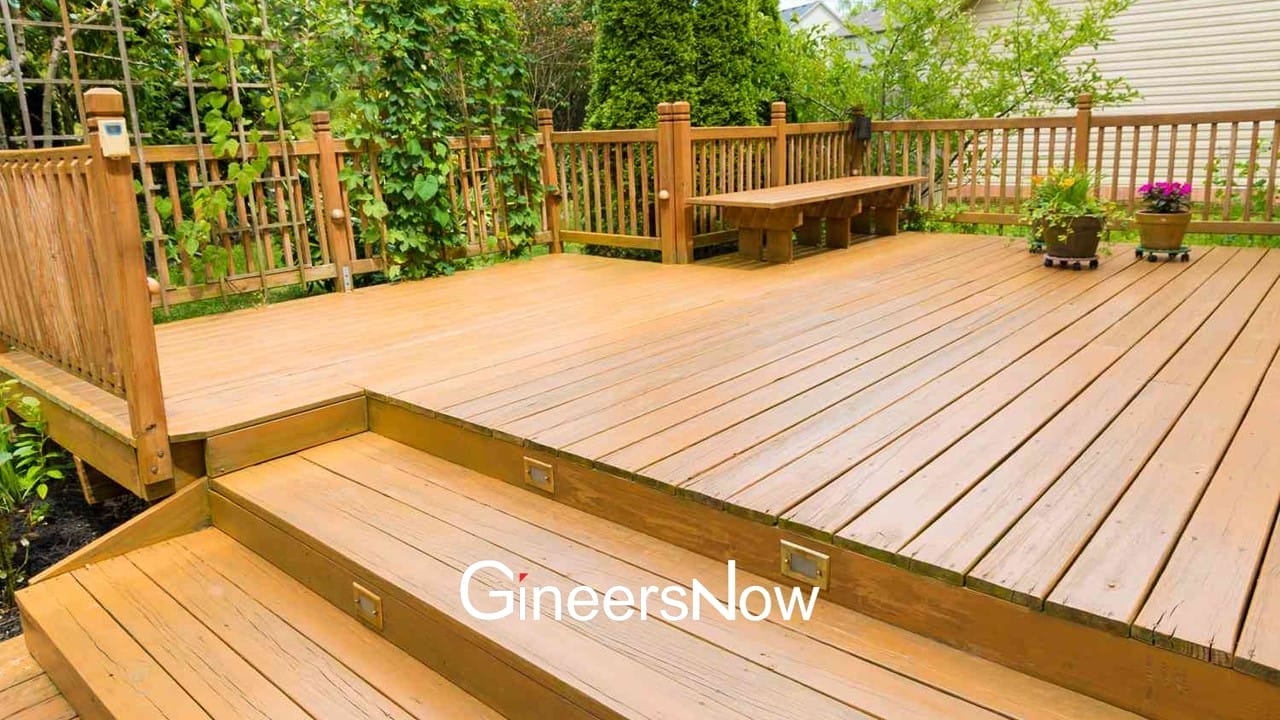When it comes to building or renovating a deck, the material you choose plays a crucial role in the overall look, longevity, and maintenance of your outdoor space. Two popular options are wood and composite decking, each with its own set of advantages and drawbacks. In this comprehensive guide, we’ll delve deep into the pros and cons of both materials, helping you make an informed decision tailored to your needs.
Understanding the Basics
● Defining Wood Decking
Wood decking has been a beloved choice for homeowners over the decades, widely celebrated for its intrinsic natural beauty and enduring charm. The range of commonly utilized woods encompasses pressure-treated lumber, cedar, and redwood, each type contributing its distinct aesthetic attributes to the decking it comprises. Pressure-treated wood, in particular, is celebrated not just for its cost-effectiveness but also for its commendable durability, making it a practical choice for many.
On the other hand, cedar and redwood stand out for their vibrant colors and enhanced resistance to decay, offering homeowners not just a deck but a long-lasting visual retreat in their outdoor spaces. These characteristics collectively underscore the unwavering popularity of wood decking and its ability to blend traditional appeal with functional benefits.
● Defining Composite Decking
Conversely, composite decking emerges as a contemporary innovation, presenting homeowners with a practical, low-maintenance alternative to the classic charm of traditional wood decking. Manufacturers craft composite decking from a blend of resilient plastic materials and wood fibers, meticulously engineering it to emulate the natural aesthetics of wood and ensure appealing visual continuity.
At the same time, the material significantly enhances both durability and longevity, providing an excellent option for those looking to make a long-term investment in their outdoor space. Proper installation ensures precision and maximizes the benefits, contributing to the overall value and performance of the decking.

Pros and Cons: Wood Decking
● Aesthetic Appeal and Natural Beauty
The natural grain patterns, warm colors, and authentic feel of wood decking are unparalleled. It blends seamlessly with the outdoor environment, creating a cozy and inviting space. However, it’s important to note that this beauty requires regular maintenance to preserve its appearance.
● Initial Cost and Long-term Investment
Wood decking generally comes with a lower upfront cost than composite decking; this makes it a tempting option for those looking to save on initial installation costs. However, it’s crucial to consider the long-term investment. Wood decks may require frequent repairs and replacements, potentially leading to higher costs.
● Maintenance and Durability
Consider the upkeep requirements of a wood deck. Regular staining, sealing, and cleaning are necessary to protect the wood from rot, insects, and weather damage. Neglecting maintenance can result in a shorter lifespan and a loss of aesthetic appeal.
● Repair and Lifespan
Wood decking offers the advantage of easy repair; you can swiftly replace damaged boards to maintain your deck’s optimal condition. Despite requiring meticulous care to prolong its lifespan, wood decking typically does not last as long as composite decking, even with attentive maintenance.
Pros and Cons: Composite Decking
● Maintenance and Ease of Care
If low maintenance is a priority, composite decking is the way to go. Resistant to rot, insects, and weather damage, these decks require little more than regular cleaning to maintain their appearance. This ease of care is a significant selling point for many homeowners.
● Durability and Longevity
Composite decking stands strong against the elements, promising an extended lifespan and establishing itself as a wise investment for long-term enjoyment. However, it is crucial to acknowledge that, despite its robustness, composite decking does not quite match the structural strength that wood offers.
● Aesthetic Options and Customization
With an extensive palette of colors and styles at your disposal, composite decking opens up a world of customization opportunities. By leveraging the expertise of reputable custom deck builders, you can select a design that perfectly echoes your home’s aesthetic and personal style. However, be mindful that lower-quality composite decks might be susceptible to fading or staining as time progresses.
● Cost and Value
The upfront cost of composite decking is typically higher than that of wood decking. However, when you factor in the long-term savings on maintenance and the potential for a longer lifespan, composite decking can offer good value for money.\
Environmental Considerations
● The Impact of Wood Decking
The production of wood decking can contribute to deforestation and habitat loss. Additionally, the chemicals used to treat the wood can have negative environmental impacts. Opting for sustainably sourced and treated wood can help mitigate these issues.
● The Benefits and Drawbacks of Composite Decking
Composite decking is often made from recycled materials, contributing to waste reduction. Its longevity also means fewer replacements over time, reducing its environmental impact. However, recycling composite decking at the end of its life can be challenging.
Making the Decision: Factors to Consider
● Balancing Aesthetics and Maintenance
Your willingness to perform regular maintenance should play a significant role in your material choice. While wood decking offers natural beauty, it requires more upkeep. Composite decking, on the other hand, provides ease of care but may have a different authentic feel than wood.
● Considering Climate and Location
The climate and location of your deck can influence the best material choice. Wood may suit certain climates, while composite decking may perform better. Consult with a local decking expert to determine the best option for your specific situation.
Conclusion
Choosing between wood and composite decking requires careful consideration of your budget, aesthetic preferences, and willingness to perform maintenance. Both materials have their unique advantages and drawbacks, and the best choice will depend on your specific needs and location. Consulting with a professional can provide tailored advice to help you make an informed decision.












